equality
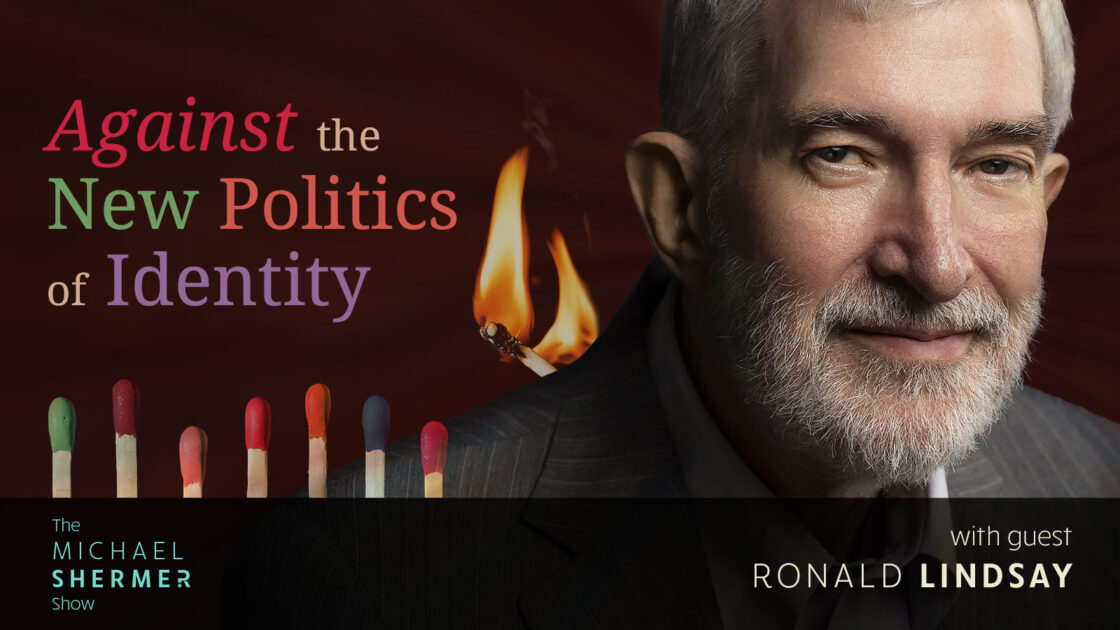
Shermer and Lindsay discuss: identity politics: identity or politics? • woke ideology • overt racism vs. systemic racism • liberalism vs. illiberalism • woke progressive leftists motivations? • Critical Race Theory (CRT) • Diversity, Equity and Inclusion (DEI) • What is progressive? What is woke? • standpoint epistemology • equality vs. equity • race • class • cancel culture • Christian nationalism.
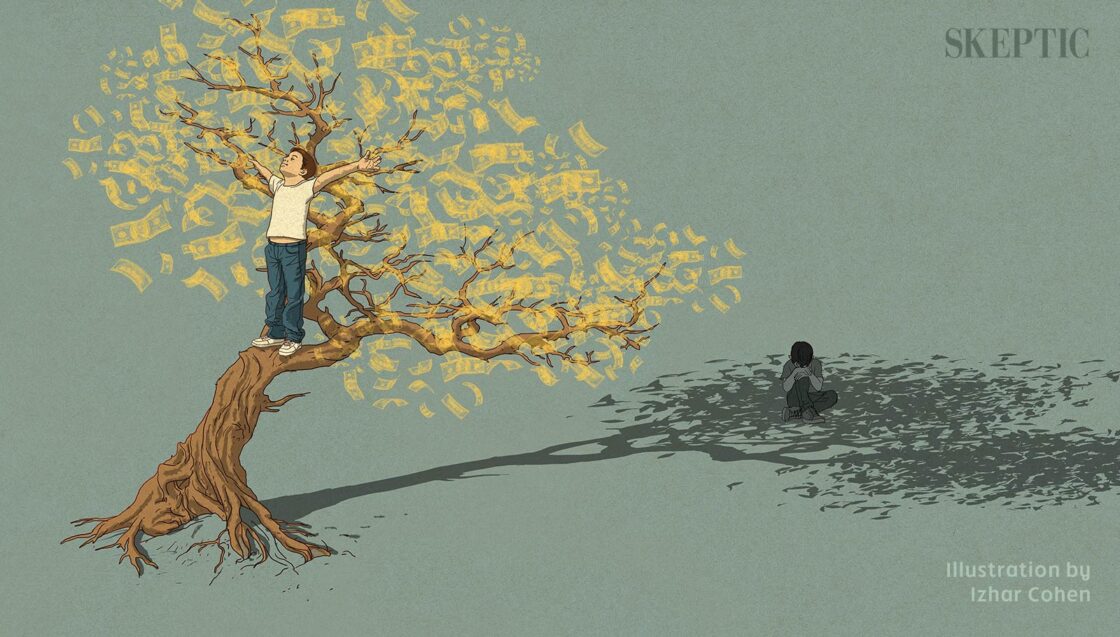
Is it more of a disadvantage to be born poor or Black? Is it worse to be brought up by rich parents in a poor neighborhood, or by poor parents in a rich neighborhood? The answers to these questions lie at the very core of what constitutes a fair society. So how do we know […]
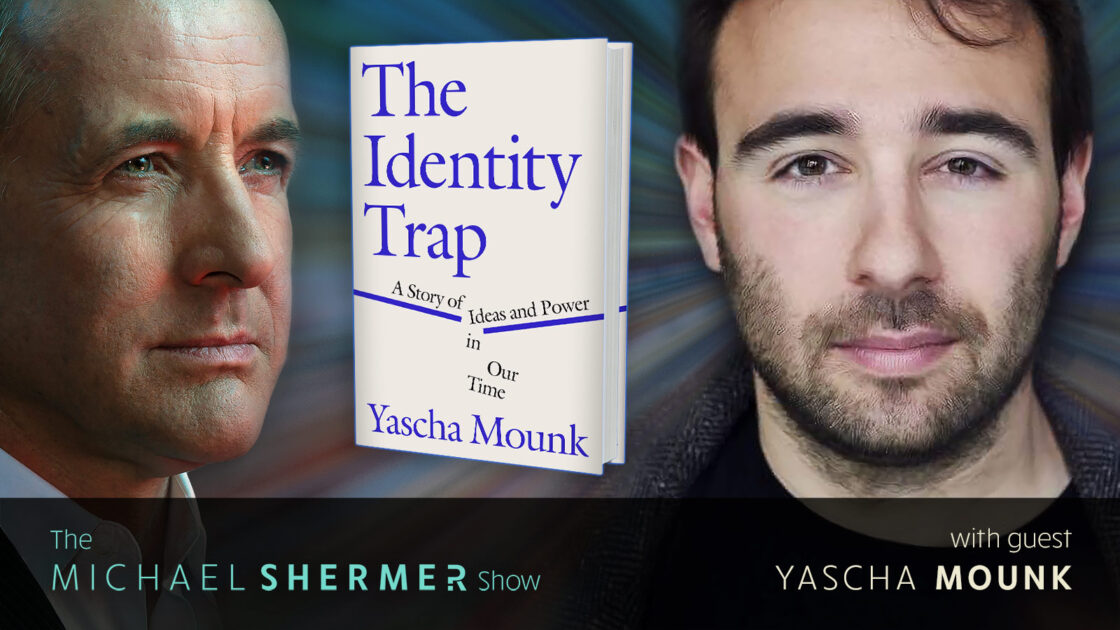
Shermer and Mounk discuss: the identity synthesis/trap • Israel, Hamas, Palestine • why students & student groups are pro-Palestinian and anti-Israel • the rise of anti-Semitism in recent years • proximate/ultimate causes of anti-Semitism • the rejection of the civil rights movement and the rise of critical race theory • overt racism vs. systemic racism • the problem of woke ideology • Trump and the 2024 election • the possibility of another Civil War • What should we do personally…
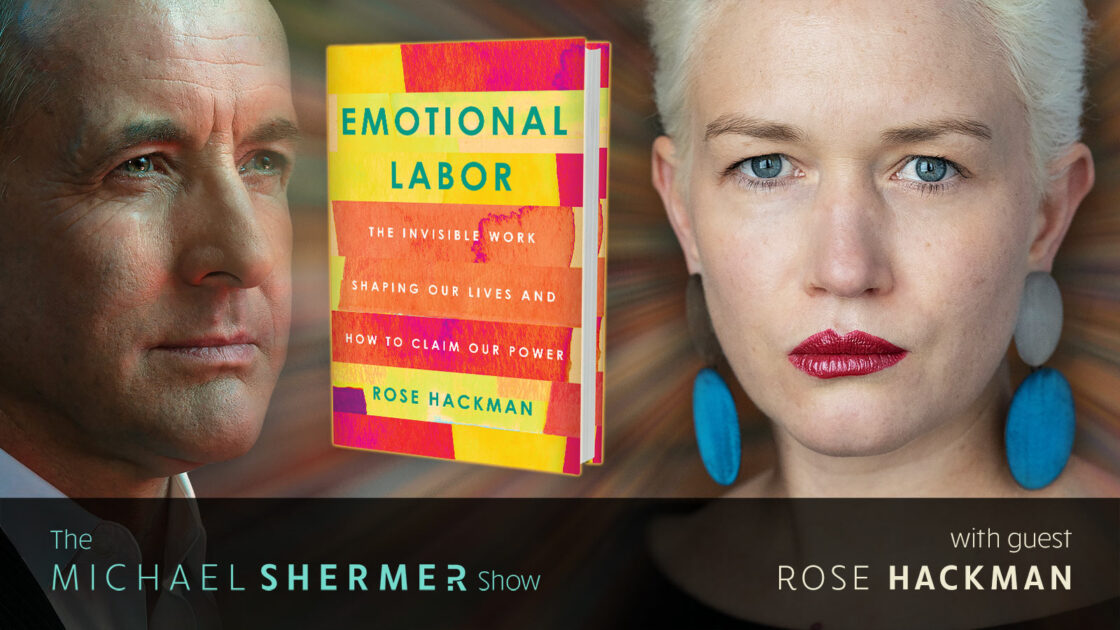
Shermer and Hackman discuss: • her journey to researching emotional labor • What is emotional labor? • sex/gender differences in emotions • equality vs. equity • income inequality between men and women • Richard Reeves’ book, Of Boys and Men • why women are more risk averse • sex and emotional labor • sex work and prostitution • pornography • #metoo • emotional capitalism • liberal vs. conservative attitudes about emotional labor and gender differences.
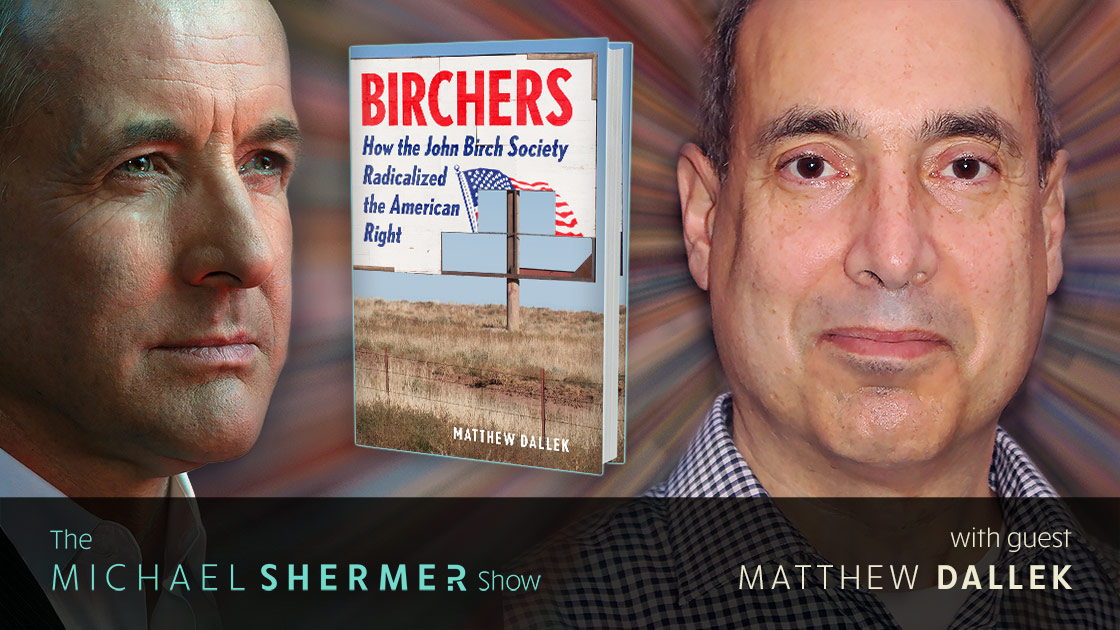
Shermer and Dallek discuss: the origin of the John Birch Society • the “right,” “conservatism,” “liberalism” • “mainstream” vs. “fringe” • Cold War context for the rise of the radical right • the link between the John Birch Society and radical right figures today like Michele Bachmann, Sarah Palin, Marjorie Taylor Greene, Glenn Beck, Alex Jones, Ron Paul, Rand Paul, and Donald Trump • COVID denialism, vaccine disinformation, America First nationalism, school board wars, QAnon plots, allegations of electoral cheating…
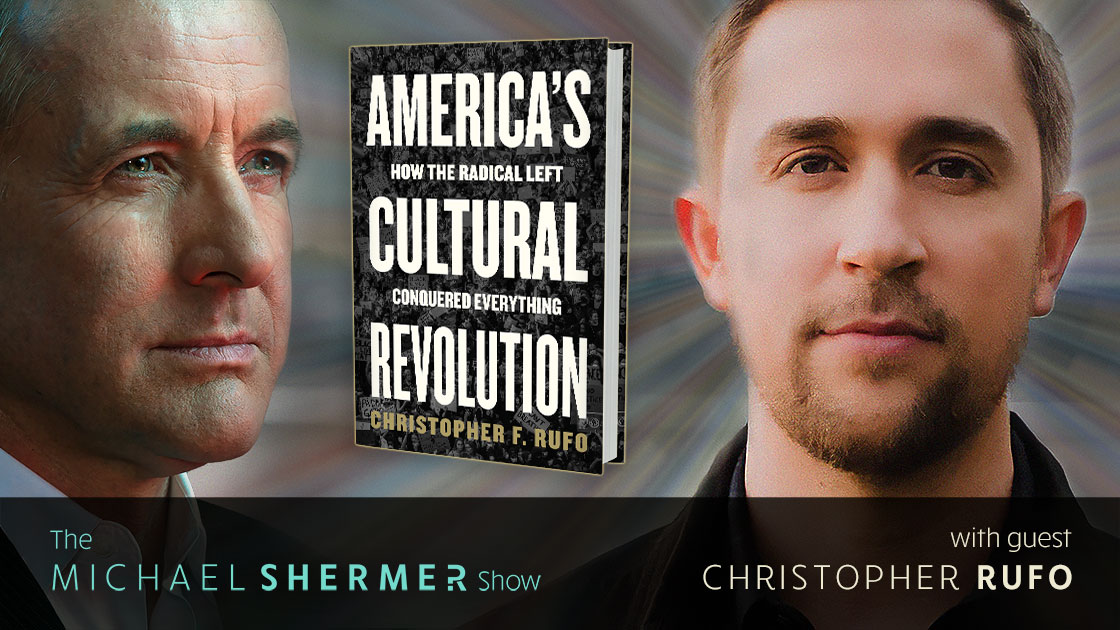
Shermer and Rufo discuss: race as America’s original sin • civil rights movement then and now • liberalism vs. illiberalism • equality vs. equity • overt racism vs. systemic racism • intellectual origins of the cultural revolution: Herbert Marcuse, Angela Davis, Paulo Freire, Derrick Bell, Eldridge Cleaver, Huey Newton • Black Lives Matter origins in the Black Liberation Army and the Black Panthers • critical race theory (CRT) • diversity, equity and inclusion (DEI), and more…
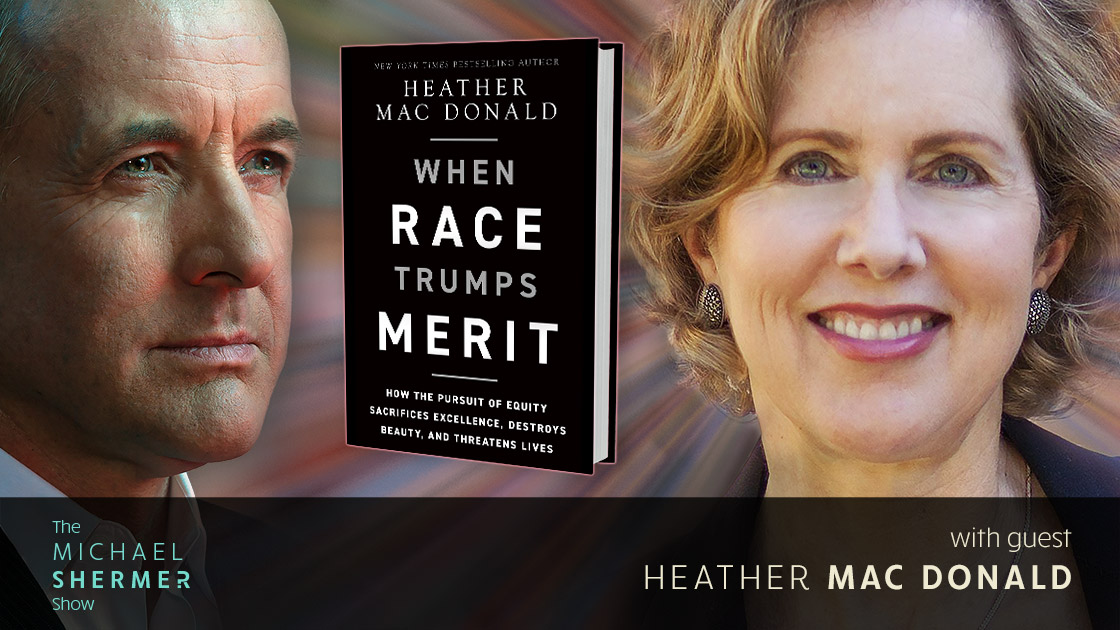
Shermer and Mac Donald discuss: race as America’s original sin • civil rights • equality vs. equity • disparate impact • overt racism vs. systemic racism • why Blacks make less money, own fewer and lower quality homes, work in less prestigious jobs, hold fewer seats in the Senate and House of Representatives, run fewer Fortune 500 companies • race and science, medicine, classical music, opera, Juilliard, Swan Lake, museums, and the law • crime and mass shootings • George…
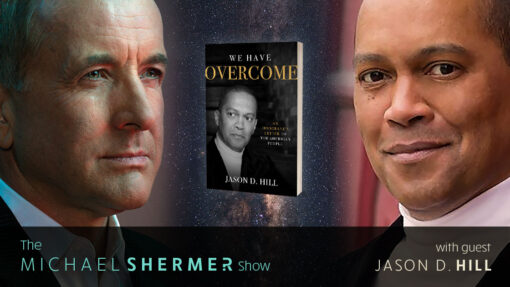
In episode 158 Michael Shermer speaks with Jason D. Hill, a black immigrant from Jamaica, about his eloquent appreciation of the American Dream, and why his adopted nation remains the most noble experiment in enabling the pursuit of happiness.
In episode 158 Michael Shermer speaks with Jason D. Hill, a black immigrant from Jamaica, about his eloquent appreciation of the American Dream, and why his adopted nation remains the most noble experiment in enabling the pursuit of happiness. PLUS: In the 7th CUPES report, we ask: across the political spectrum, how knowledgeable are people when it comes to the available data on fatal police shootings of Black Americans?
In Science Salon # 38, Michael Shermer and Hebrew University historian and best-selling author (Sapiens, Homo Deus), Dr. Yuval Noah Harari, discuss the central ideas of his new book, 21 Lessons for the 21st Century.
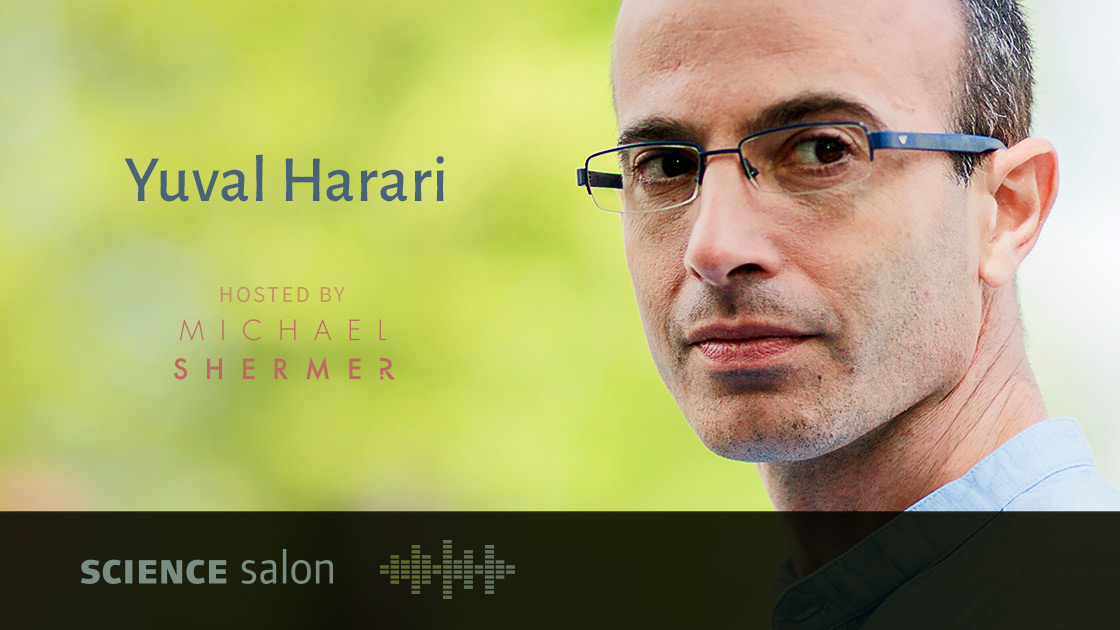
In this dialogue with one of the most interesting minds of our time, the Hebrew University historian and best-selling author (Sapiens, Homo Deus), Dr. Yuval Noah Harari, he and Dr. Shermer discuss: history, work, liberty, equality, community, civilization, nationalism, religion, immigration, terrorism, war, humility, God, secularism, ignorance, justice, post-truth, science fiction, education, meaning, meditation, and more…
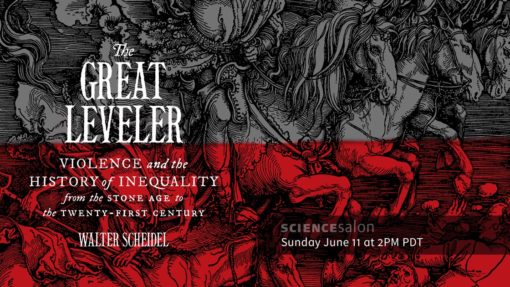
Are mass violence and catastrophes the only forces that can seriously decrease economic inequality? To judge by thousands of years of history, the answer is yes. Tracing the global history of inequality from the Stone Age to today, the Stanford University historian Walter Scheidel shows that inequality never dies peacefully. Inequality declines when carnage and disaster strike and increases when peace and stability return.


















